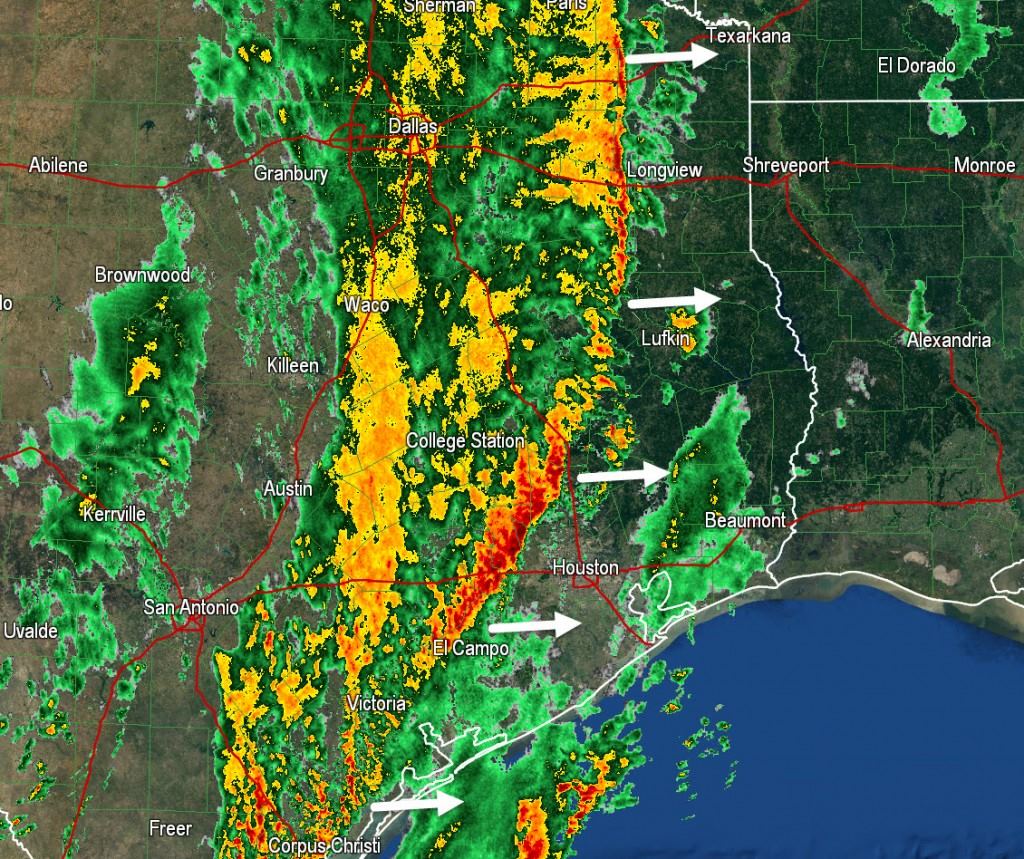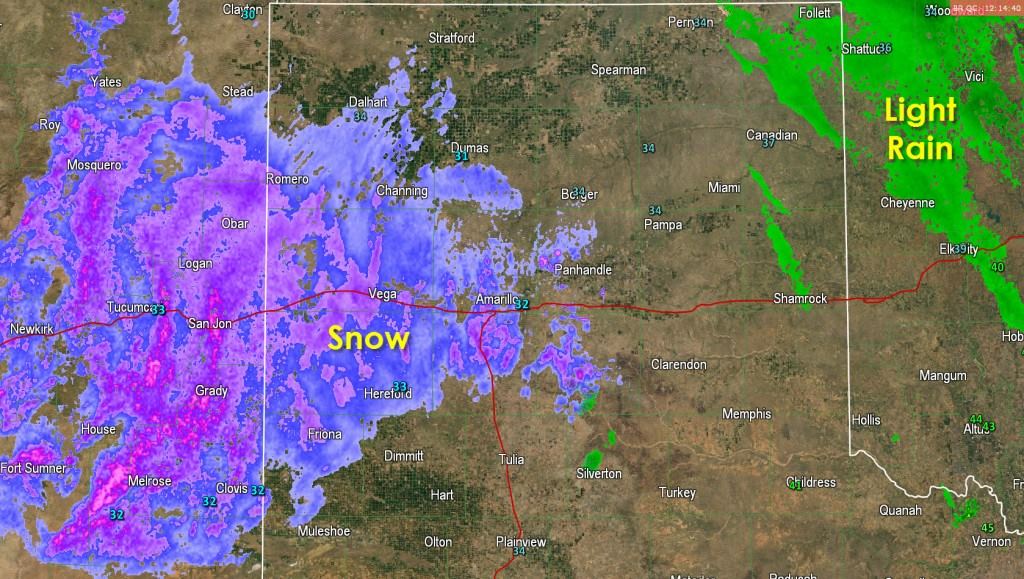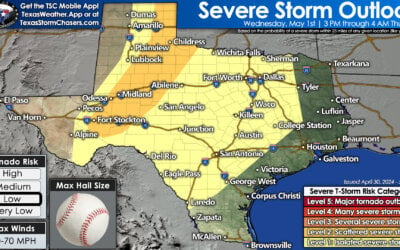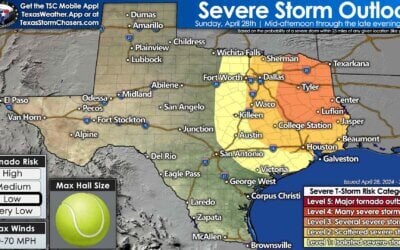A line of heavy showers with gusty winds continues to move east across Northeast Texas, East Texas, and Southeast Texas this morning. I can’t really call them thunderstorms because they’re not producing much, if any, lightning! The lack of lightning is common during winter events which are driven by kinematics versus thermodynamics. Even though no lightning is being produced these showers still pack a punch thanks to the strong low level jet. Gusty winds up to 45-50 MPH are possible as the squall line arrives at a given location. Parts of the line were producing wind gusts over 60 MPH earlier this morning. I haven’t seen any 60+ MPH wind reports in over an hour – probably due to almost no surface-based instablity across Northeast Texas and East Texas. Southeast Texas is a bit more unstable due to their proximity to the Gulf of Mexico. We may have one or two marginally severe wind gusts in Southeast Texas this morning. I anticipate the squall line will exit Texas to the east by lunchtime. In its wake there will be a few hours of stratiform rain along with much cooler temperatures. Folks should dry out later today with northwest winds and much cooler conditions.
After a lull overnight snow is moving back into the western Texas Panhandle. Friona, Hereford, Canyon, Amarillo, Vega, and Romero are all receiving light to locally moderate snow. This will continue as heavier snow moves in from New Mexico. The heaviest snow accumulations are expected in the northwest Texas Panhandle with an additional 3 to 6 inches of accumulation possible. Most locations in the Northwest Panhandle have already receive 2 to 3 inches of snow – so a decent winter storm. Lower additional snow accumulations of 1 to 3 inches will be possible across the western and central Texas Panhandle today. Slushy to slick road conditions are a good bet especially in areas that fall below 30 degrees.






0 Comments